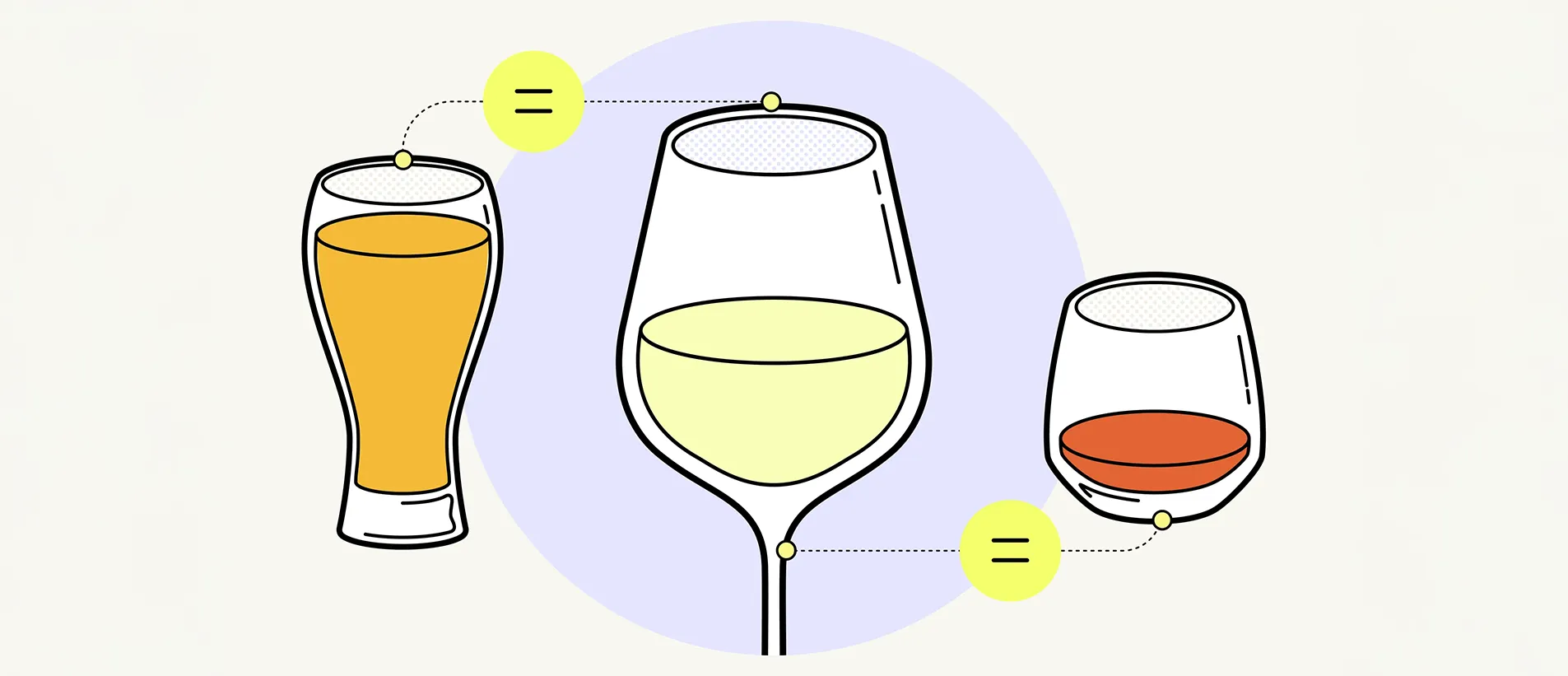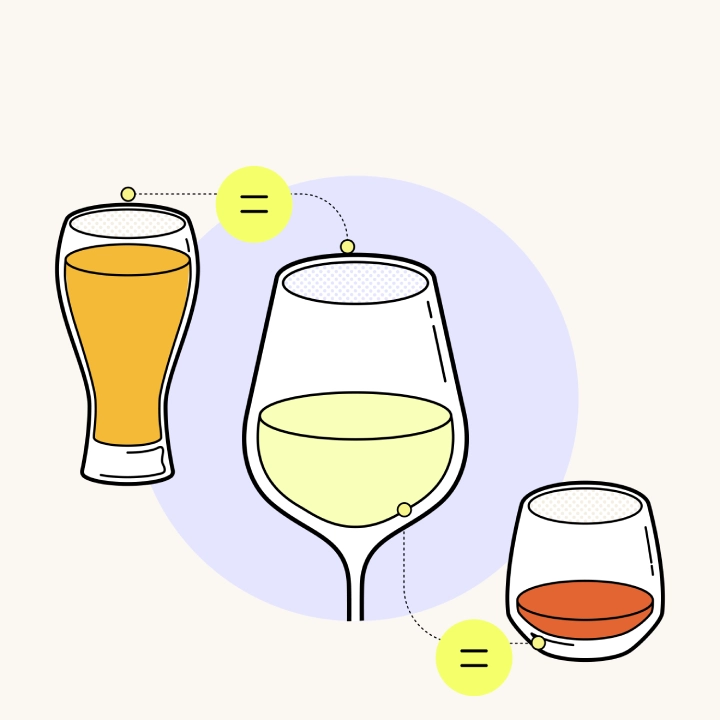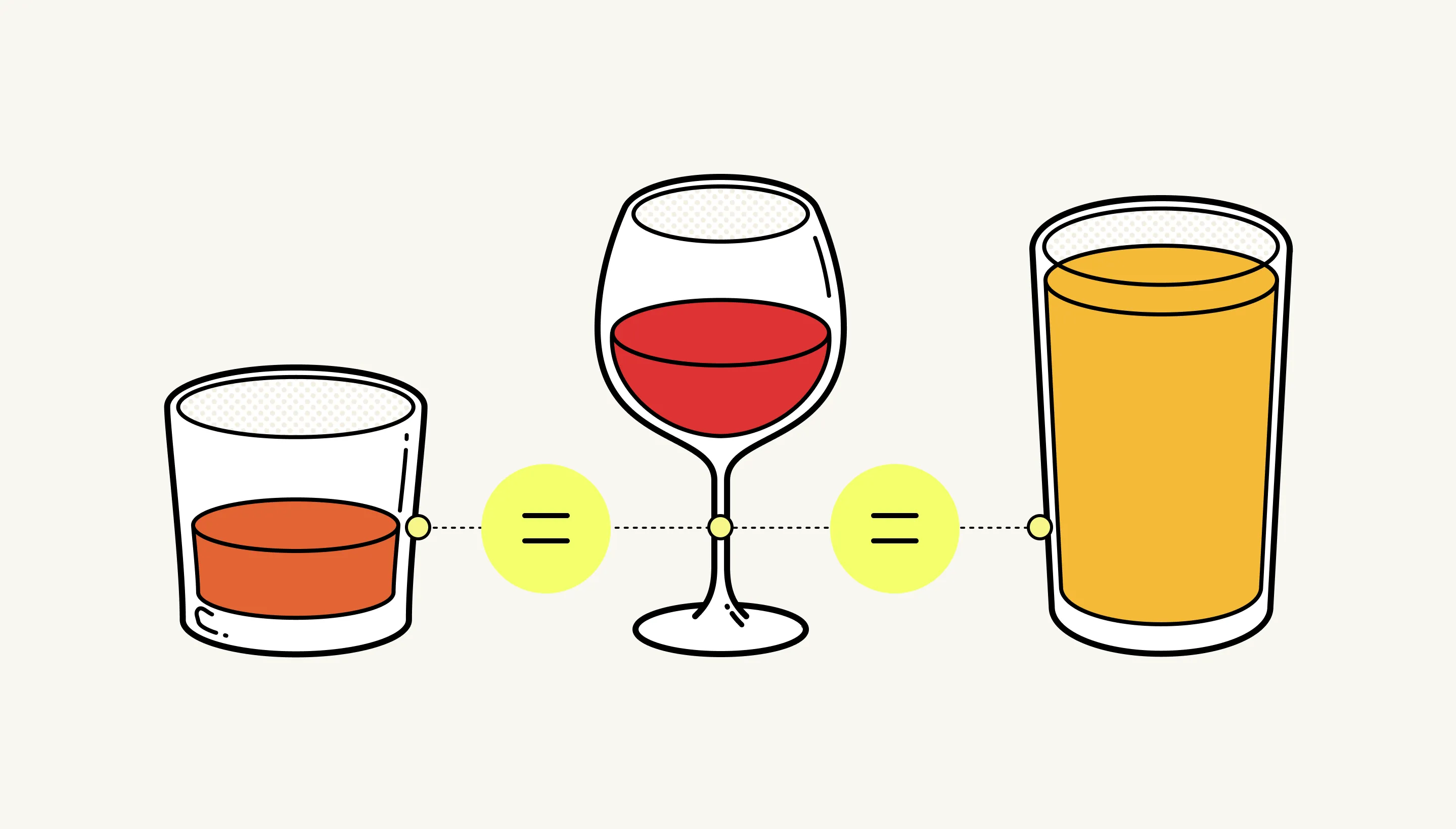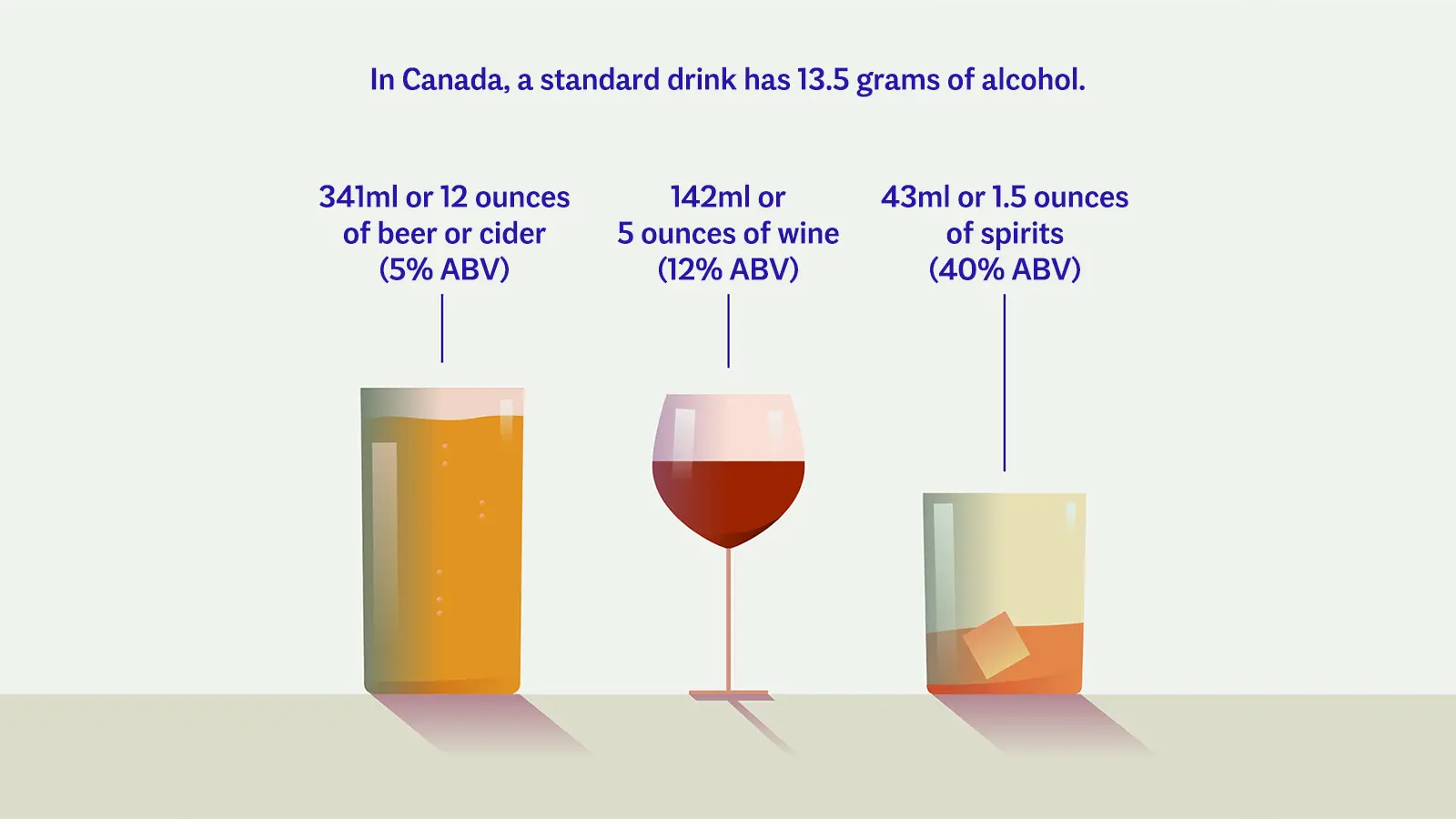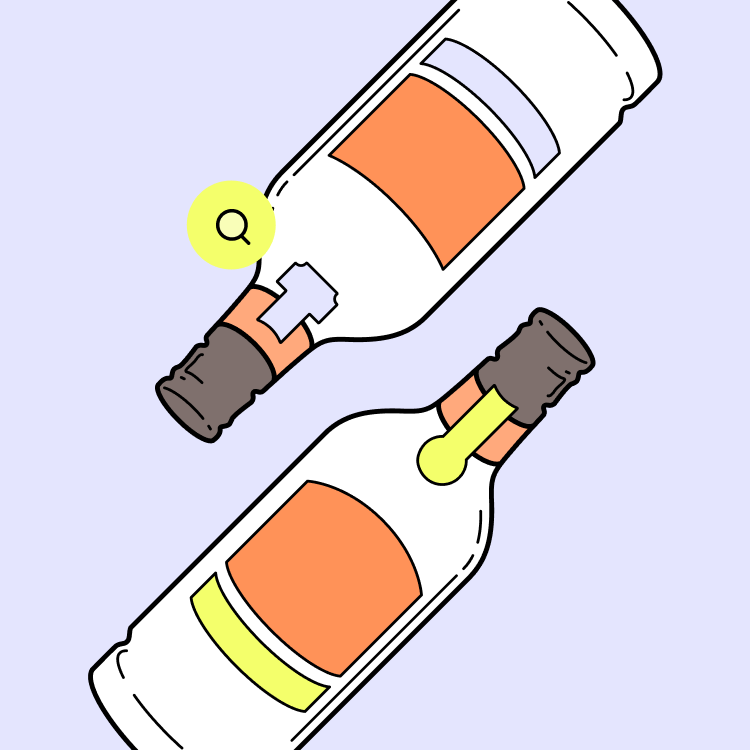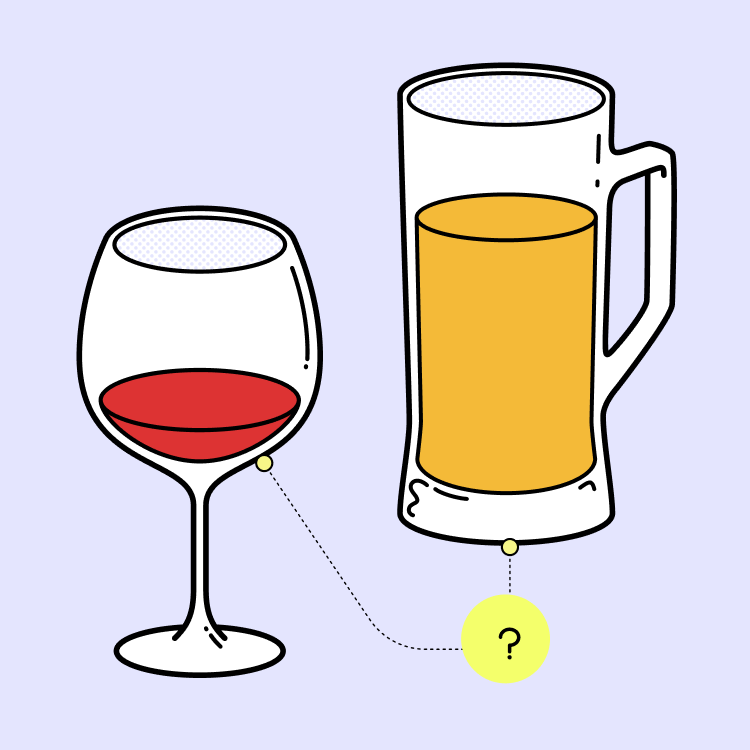Different countries allow a different amount of alcohol in a standard drink (1). Some of these were originally developed based on traditional drink sizes or preference – but, in each case, the same measure applies whether you’re drinking beer, wine or spirits.
For example:
- A standard unit in the UK contains eight grams of ethanol
- In Australia and France, the standard is 10 grams
- A Mexican standard drink contains 13 grams
- There are 14 grams of ethanol in a standard drink in the US, Argentina and Chile
Standard drinks can help you understand drinking guidelines
It’s true that a ‘standard drink’ doesn’t always translate into how drinks are actually served. For example, many cocktails contain several different spirits or are mixed with wine or champagne, so they’ll most likely contain more alcohol than in a standard drink. Also, since wine comes in different strengths, and glasses are available in different sizes, the amount of alcohol you drink may not be standard. This is especially true if you’re at home and top up your glass before you’re finished.
However, the concept of a standard drink is still a useful concept. Since the concentrations of drinks are different, a standard drink ensures that the amount of ethanol in a serving is always the same. This is important for sharing information about drinking and its effects on your health.
Using a standard drink allows for guidance on levels of drinking, regardless of whether the drinks are spirits, wine or beer. Plus, advice is generally given in terms of the number of standard drinks it’s best not to exceed in a day or a week, or on an occasion.

